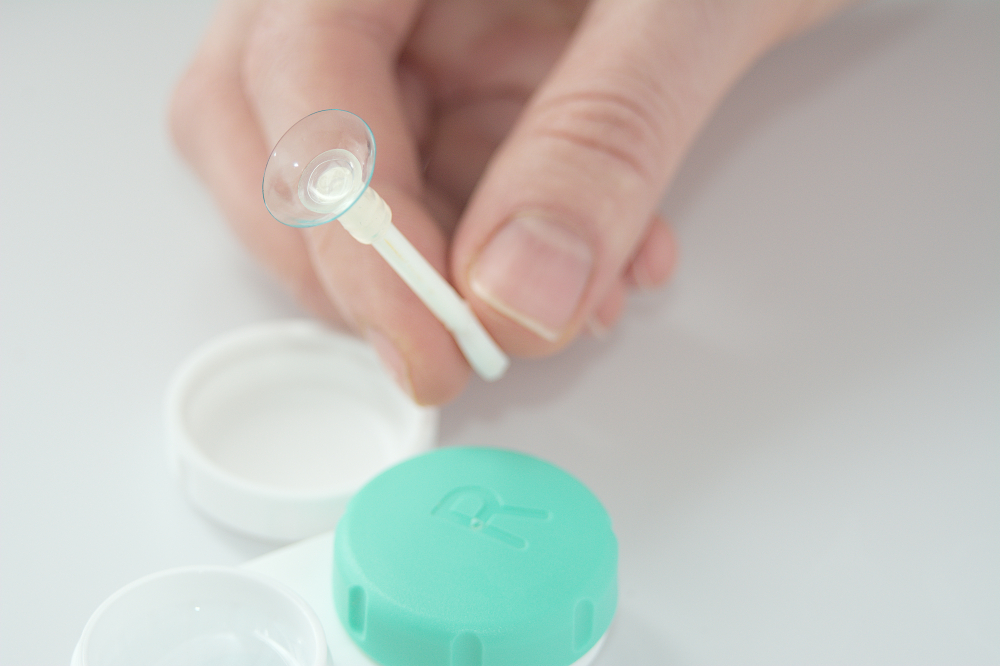
“I’ve been using the same contact lens case for months - it still looks clean.”
“I just rinse my lenses with water. It’s never caused a problem.”
“I fell asleep in my contacts, but it was just one night.”
Contact lens hygiene is not something to take lightly. What might seem like a harmless shortcut can actually put your eyes at serious risk. Your eyes are delicate, and keeping them safe starts with knowing the risks and avoiding the most common hygiene mistakes.
Your contact lenses sit directly on your eye’s surface, making them a direct pathway for bacteria, fungi, and parasites if not handled properly. One of the most dangerous conditions associated with poor lens care is microbial keratitis; an infection of the cornea that can be caused by bacteria, fungi, or viruses. This condition doesn’t start with a loud warning. It may begin with redness, irritation, or mild discomfort. But without quick treatment, microbial keratitis can rapidly damage your cornea and leave lasting scarring or vision impairment.
Fungal eye infections are rare - but they’re serious. Fungi can thrive in warm, moist, unclean environments, like a lens case that hasn’t been properly cleaned or replaced. These infections tend to progress more slowly than bacterial ones, which means they may go unnoticed until they’ve caused significant damage.
Most people don’t mean to put their eyes in danger. But small habits and assumptions can lead to big problems:
• Rinsing lenses or cases with tap water: Tap water isn’t sterile and can contain microorganisms like Acanthamoeba, which can cause a painful and difficult-to-treat infection.
• Sleeping in your contacts: This deprives your cornea of oxygen and gives microbes more time to multiply.
• Using old solution or “topping off” instead of replacing: This reduces disinfecting power and gives bacteria a chance to grow.
• Touching lenses without washing your hands: Even clean-looking hands can transfer oil, dirt, and harmful organisms.
• Keeping the same lens case for too long: Your case should be cleaned daily with fresh solution and replaced every 1 to 3 months.
Maintaining lens hygiene isn’t complicated - but it does require consistency. Always wash your hands before handling your lenses. Use fresh solution every time. Replace lenses and lens cases as directed. Never reuse or share lenses. And most importantly, never ignore discomfort or vision changes.
Wearing contact lenses doesn’t just require daily hygiene. It also means staying on top of your eye health with regular check-ups. Many contact lens-related complications develop slowly and without obvious symptoms. Regular eye exams allow your optometrist to detect early signs of infection, dryness, inflammation, or improper lens fit before they lead to serious issues. At Eye See Vision Center, we go beyond checking your prescription. We make sure your eyes are healthy, your lenses are safe, and your vision stays clear and protected.
If you’re a contact lens wearer or considering becoming one, schedule a an eye exam at Eye See Vision Center. We’ll evaluate your eye health, ensure your lenses are a good fit, and guide you on safe hygiene practices. Visit our office in Crestwood, Missouri, or call (314) 788-6440 to book an appointment today.






